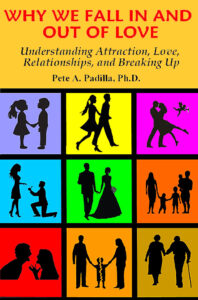In the chapters on the different aspects of relationships, I made a point to say that each of the stages requires a different, and yet specific skill set needed to successfully navigate through each of these three separate stages. Thus, I will belabor this point until the reader gets a clue to how important it is to understand that each stage requires not only a different understanding of them, but also a unique set of actions (based upon the aforementioned understanding) that gets the individual through each stage.
I suppose that the easiest way to make my point about these differences is to say that once a person possesses something, they no longer will “want” said object/ person. To “want” something is to desire it under the circumstances that they do NOT possess it. In short, they want something they don’t have.
Yet, once a person possesses any such object, they can no longer “want” it. After all, they have it. It is theirs. Thus, the rules regarding possession change once someone “has” something. Again, under these rules, a person cannot “want” someone that they possess. After all, they “have” them. That person is theirs. Thus, there is no “want” involved.
Thus, a person can only “want” something they don’t “have.” However, once a person comes to possess a person, they can no longer “want” them. They can care about any said person; but since they “have” them, there is no “want” involved. And since there is no “want” implicated in the situation, the dynamics between the persons changes from the time when there was some sort of “want” involved.
Again, the persons caught up in such a relationship can “want” their partner as in the manner that they “care about” them. But once they “have” the person they care about, the social dynamics change. As I mentioned above, a person can only “want” something they don’t “have.”
You can quickly access each of the book chapters by using the links below:
V. STAYING IN A RELATIONSHIP: MAINTAINING A RELATIONSHIP
- “Collecting” Running Water: Facilitating Your Partners Escape.
- Have a Backbone: Always Stick Up For Yourself.
- Is Honesty Always the Best Policy? Should You Lie to Keep the Peace?
- Jealousy: Dealing With the Green-Eyed Monster.
- The Six Types of Stimulation: Can “The One” Meet All Six?
- “Intimacy” Versus Intimacy: A Peek Behind the Curtain.
- Domestic Violence: Making Excuses for Bad Behavior.
- Once a Cheater, Always a Cheater? Is It Possible to Overcome Infidelity?
- A Couple’s Identity Eclipse: Have Your Own Set of Friends and Interests.
- The Six Stages of Love: Can Your Relationship Make it Through All Six?
- Invested Effort: All the Work You Put In Will Make You Want to Stay.
